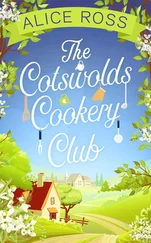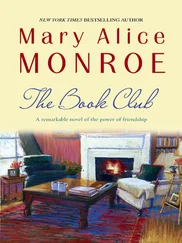Alice Hoffman - The Dovekeepers
Здесь есть возможность читать онлайн «Alice Hoffman - The Dovekeepers» весь текст электронной книги совершенно бесплатно (целиком полную версию без сокращений). В некоторых случаях можно слушать аудио, скачать через торрент в формате fb2 и присутствует краткое содержание. Год выпуска: 2011, ISBN: 2011, Жанр: Историческая проза, на английском языке. Описание произведения, (предисловие) а так же отзывы посетителей доступны на портале библиотеки ЛибКат.
- Название:The Dovekeepers
- Автор:
- Жанр:
- Год:2011
- ISBN:978-1-4516-1749-8
- Рейтинг книги:2.5 / 5. Голосов: 2
-
Избранное:Добавить в избранное
- Отзывы:
-
Ваша оценка:
- 60
- 1
- 2
- 3
- 4
- 5
The Dovekeepers: краткое содержание, описание и аннотация
Предлагаем к чтению аннотацию, описание, краткое содержание или предисловие (зависит от того, что написал сам автор книги «The Dovekeepers»). Если вы не нашли необходимую информацию о книге — напишите в комментариях, мы постараемся отыскать её.
The Dovekeepers — читать онлайн бесплатно полную книгу (весь текст) целиком
Ниже представлен текст книги, разбитый по страницам. Система сохранения места последней прочитанной страницы, позволяет с удобством читать онлайн бесплатно книгу «The Dovekeepers», без необходимости каждый раз заново искать на чём Вы остановились. Поставьте закладку, и сможете в любой момент перейти на страницу, на которой закончили чтение.
Интервал:
Закладка:
I removed my veils in public places. I did not bother to braid my hair but let it shine, seeking salvation from my loneliness.
Still they all turned away, unable to see me, for I was no more than red air swirling past them, invisible to their eyes.
BEFORE LONG there were posters with my brother’s likeness set upon the walls. The Romans would pay for information, more if he was captured, even more if he was found guilty of his crimes and crucified. Amram no longer came home and instead was resigned to moving around the city in the dark; he belonged to dreams rather than to the routine of our daily lives. My father and I were the only occupants in our house. Though we didn’t speak to each other, we both looked out into the darkness as it began to fall. We knew that was where Amram was. Once again we shared something. We could not hear of a capture without wincing. We showed each other flashes of raw emotion every time the door rattled. But it was never him, only the wind.
One terrible night it was not the wind but rather a troop of soldiers at the door. My father shrugged when Amram’s name was brought up; he insisted he had no son. It was his bad fortune to have only one child, a worthless daughter.
When even Amram’s friends, those who had praised him as the unconquerable phoenix, dared not help him, my brother knew his life in Jerusalem was over. He had no choice but to escape. There were fortresses in the desert our people had commandeered. If he could reach one, he might be safe. Before he left, he took the risk to come and say good-bye. After he and my father embraced, Amram motioned me aside. He had brought a farewell gift. A blue scarf. It was far too beautiful for me, more than I deserved, yet he insisted I take it.
“There are worms that spend their lifetimes spinning such threads, and now you refuse to honor their destiny?”
“No worm made this.” I laughed to think of such heavenly fabric being spun by insects. It was the opposite of my father’s spider-made cloak, which had been woven of fabric so pale it faded into air. This blue silk announced itself with a splash of unexpected color.
Amram vowed it was true, insisting that while the worms had spun their silk in the boughs of mulberry trees, they had been devoted to me, as he was. Upon completing their task, each worm had turned into a blue butterfly, arising into the heavens once its work on earth was done.
I looped the scarf over my hair. I would think of heaven every time I wore it and of my brother, who was so steadfast in his faith. I stood at the gate of our house, remembering that he had said the freckles on my skin were like stars. Like the stars above they would lead him to find me again.
THERE WERE FEW of us left in the city. We rummaged through ruins, cautious, in fear for our lives. At night we heard the screams of those who were taken to the Temple, captured by soldiers prowling the alleyways in search of anyone of our faith. The members of the legion drank wormwood, a dangerous, nearly lethal brew which made them vicious as well as drunk. No woman was safe. No man’s life was his own. Whoever was able had fled to Alexandria or Cyprus, but my father insisted we stay. He had more work to do, and that work was the knife that he carried. In time, Jerusalem would awake, and like a lion it would free itself from the nets of slavery. Teeth and claws, I heard him say, that is what our future will bring. But I knew what he really meant was flesh and bones.
I knew from my dreams what it meant to come face-to-face with a lion.
SMOKE DRIFTED from fires set throughout the city, and the murk acted as a screen so that our people could escape from the marauding soldiers. I could smell olive wood, burning willow. Scorched remnants ignited palm-thatched roofs and haystacks. On the pallet where I slept, in our small house, I covered my head and wished I lived in another place and time. I wished I had never been born.
One afternoon while I was at the market searching the nearly empty bins of the venders for peas and beans for our meager supper, the Romans appropriated our home. I stood watching from a hidden place in my neighbors’ abandoned courtyard, for their house had been ruined months earlier. The soldiers ransacked our house before they burned it to the ground and our belongings were strewn in the chalky dirt. Sparks flew up like white moths, but when they fell down upon the earth, they smoldered bright crimson, like the petals on the flame trees.
If I had little before, I had close to nothing now. I went through the rubble and took only what could fit in my two hands, a small griddle to cook flatbread, a lamp made of white Jerusalem clay to burn oil on the Sabbath, my father’s prayer shawl, singed at the fringes on the four corners, his leather flask, a packet of salt that would taste of smoke when used in cooking. I waited for my father, hidden behind a wall. My skin was dusky, and there were ashes in my hair. If my father didn’t come back, if he had been murdered or had fled without telling me, I thought I might simply stay behind the wall, planted there like a flame tree.
Finally my father appeared, slinking through the twilight, wearing the cloak that allowed him to make his way without being detained. When he saw the prayer shawl in my hands, he knew the time to flee had come. I wondered if he would leave me there to be the beggar woman I’d always feared I might become, to scrounge through the garbage. But he motioned for me to follow as another man might signal a dog. I resolved to do as I was told and trudged after him. Perhaps our blood relation meant something to him after all, or perhaps he took me with him because he feared how my mother in the World-to-Come might respond if he abandoned me there in the street. Or he may have simply remembered it was he who had gotten her with child, and that I’d been correct to consider him a partner in my crime. If my tears had drowned her from the inside out, he was the one who had ushered my life into hers.
AT NIGHT we went from house to house, pleading to be let in. There were fewer and fewer of our people in the city every day — they had fled or were in hiding — and it became difficult for us to find those willing to help. I was a dog and nothing more, asking no questions, unable to think for myself. I hovered in the shadows as people turned us away. Even those who believed in my father’s politics were wary, unwilling to leave themselves at risk. Only a few left their doors open, and even they made sure to look the other way and not greet us with an embrace. Often we slept on straw pallets, grateful for a shelter meant for goats. We shared the animals’ chamber and slept restlessly with the sound of beasts breathing beside us. I had the same dream again and again. In my dream there was a lion sleeping in the sun, one I dared not wake. One night I dreamed that the lion was eaten whole by a snake that devoured everything in its path. I stood barefoot in my dream, on a stretch of rocky earth that was so blindingly white I couldn’t open my eyes. I felt compassion for this wild beast, the king of the desert, for in my dreams he had given in to the snake without a fight. He had looked at me, beseeching me, staring into my eyes.
That night my father shook me awake. My feet were bleeding on the rocks in my dream. Before me there was the coiling black viper of the desert that wraps itself around its prey and refuses to let go. He had devoured the lion and now had come for me. In my dream I offered the scaled beast almonds and grapes, but it had a taste for human flesh. I begged for it to release me as I mourned for the lion. I yearned for that beast in the way that a person yearns for her own destiny. What happens is already written, and the lion had been written beside my name.
Читать дальшеИнтервал:
Закладка:
Похожие книги на «The Dovekeepers»
Представляем Вашему вниманию похожие книги на «The Dovekeepers» списком для выбора. Мы отобрали схожую по названию и смыслу литературу в надежде предоставить читателям больше вариантов отыскать новые, интересные, ещё непрочитанные произведения.
Обсуждение, отзывы о книге «The Dovekeepers» и просто собственные мнения читателей. Оставьте ваши комментарии, напишите, что Вы думаете о произведении, его смысле или главных героях. Укажите что конкретно понравилось, а что нет, и почему Вы так считаете.












